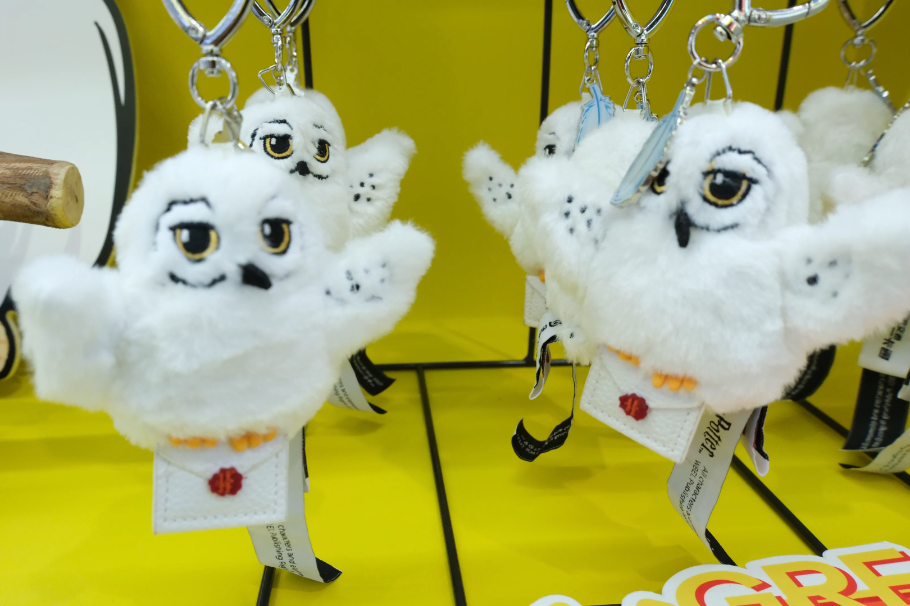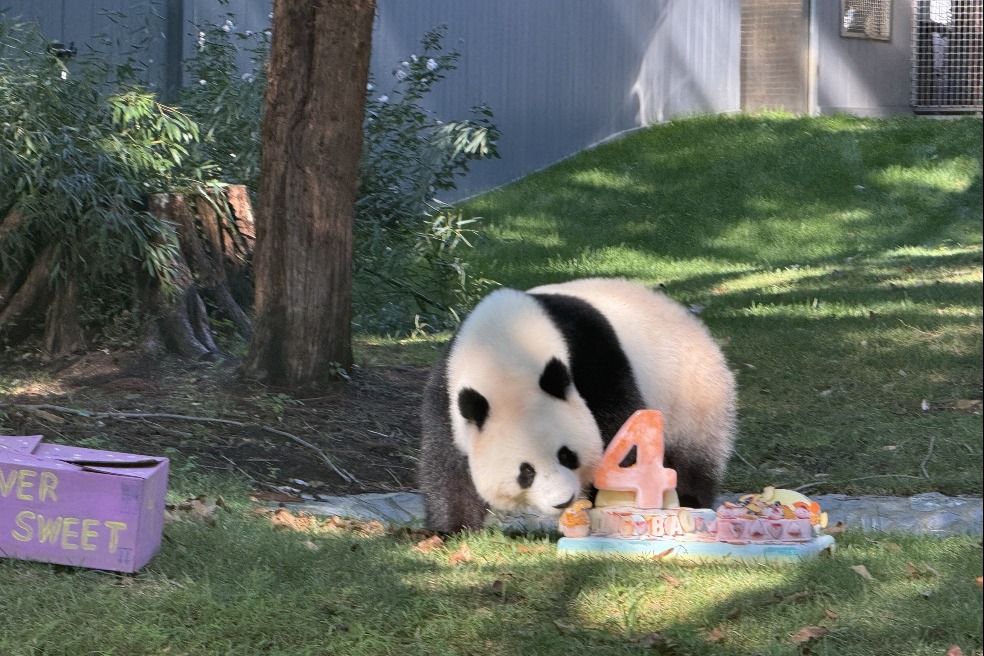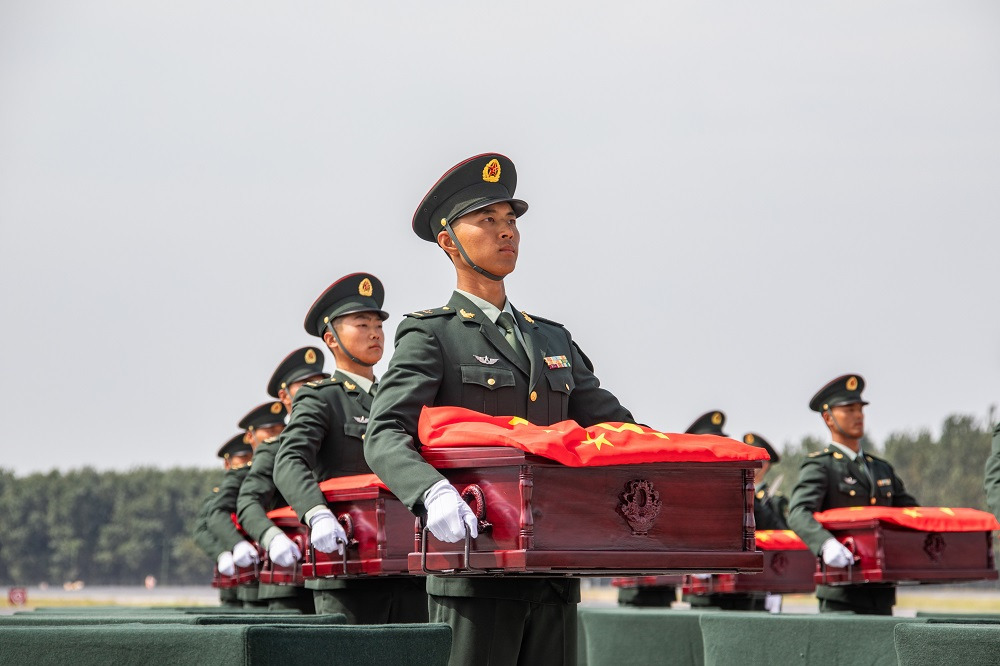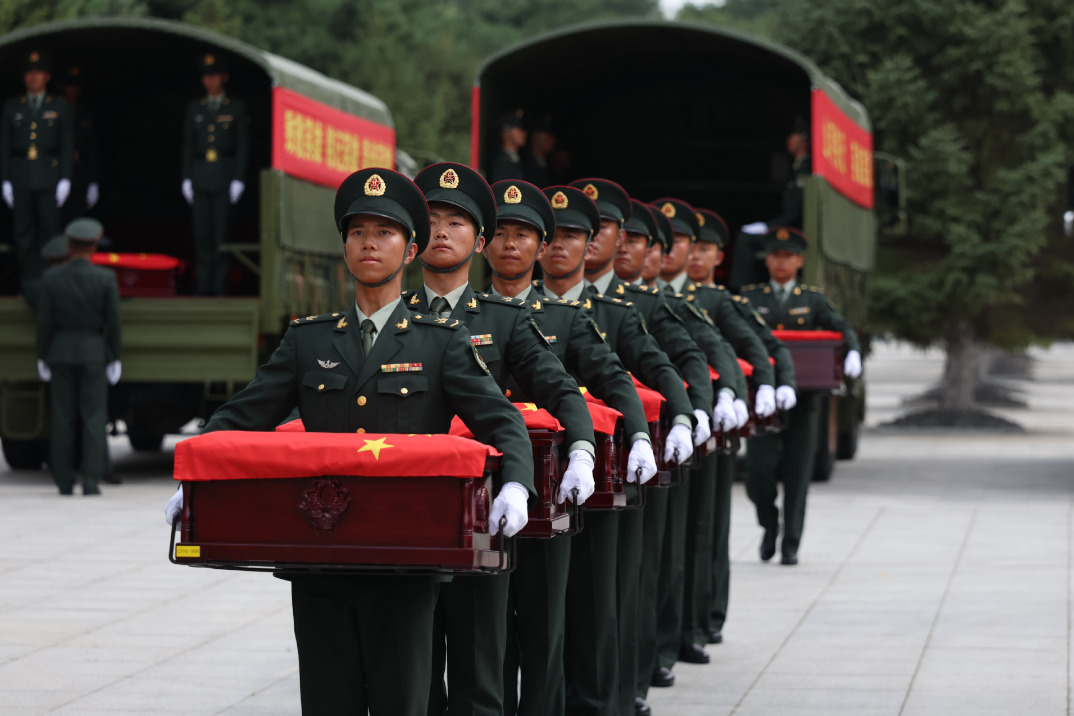Festive haircuts hoped to bring extra trimmings





Children from No 4 Kindergarten in Guangping county, Hebei province were excited to experience a series of activities to celebrate the traditional Chinese Longtaitou Festival on Tuesday.
They learned traditional ballads from their teachers and gave simulated haircuts to their classmates, as well as performed a wonderful dragon dance.
The festival falls on the second day of the second month in the Chinese lunar calendar every year, which refers to the start of spring and the farming season. This year, the festival fell on Tuesday.
Longtaitou literally means "dragon raises its head", symbolizing that the legendary creature has awoken from his winter sleep and the spring rains are to come.
"Via these activities, we hope the children can get a deeper understanding of the cultural connotation of traditional Chinese festivals," said Jin Qingfen, a teacher from the kindergarten. "It will also help them enhance their sense of national pride and belonging."
In Zhaoxian county, Shijiazhuang, Hebei, thousands of people gathered to hold an activity called Longpaihui during which they showed respect for the dragon and prayed for health and good luck.
A worshipping tablet for a dragon was placed in a sedan with yellow curtains and escorted by a dozen young men along main streets in the county, and finally back to the temple of the dragon.
A procession of folk actors followed the sedan and gave more than 30 forms of folk performances, such as drum and yangko.
The ceremony has been listed as a provincial intangible cultural heritage.
The most popular tradition of the festival is getting a haircut, as people believe that a new hairdo brings good luck for the new year, showing the expectation of a new start.
As of Monday, searches related to haircuts on the shopping platform Meituan had doubled year-on-year.
Several business owners said that the peak began over the past weekend and is expected to last a week.
"I sent invites to my customers via social media a week ago, reminding them to book their appointments ahead of the rush," said Liu Fujia, a manager of a hair salon in Harbin, Heilongjiang province. "There are eight hairdressers in my salon and as of 5 pm we have received around 100 customers, twice as much as usual.
"Some customers have to wait for more than an hour," he said. "I didn't have my lunch until 4 pm, but I feel happy to attract a large number of customers for the annual ritual."
Chinese people overseas also had their own way of celebrating the festival.
A group of medical workers in Gambia, who had arrived in June, participated in group haircuts and hairstyling activities. Team members got a brand-new look after their teammate Wang Guang gave them haircuts, bringing home a little closer for a moment in a faraway land.
In East China's Fujian province, people eat tofu balls and often make tofu and vegetable balls to pray for the family and for prosperity.
In parts of Shandong province, fried beans are the traditional festival fare.
Meanwhile, other foods, like dumplings, spring rolls and popcorn, are named after dragon body parts to mark the day. Noodles are dragon's whiskers (longxu), dumplings are dragon's ears (long'er), spring rolls are dragon's scales (longlin), and popcorn is dragon seeds (longzi).



Today's Top News
- China pays its respects to 30 war martyrs
- Nation honors fallen soldiers returned from South Korea
- Equal consultation with mutual respect right way to settle TikTok issue
- Aid program must return to its roots
- UN Security Council slams deadly strikes in Qatar
- Trump to meet Qatari PM in New York


























